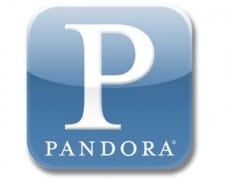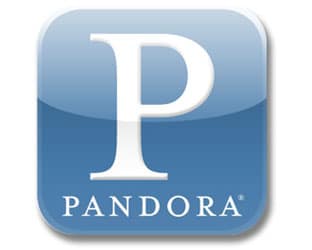 There’s a reason Pandora’s streaming rate is such a high percentage of its revenue, says a BTIG analyst – that’s because it isn’t bringing in much in advertising. It makes for a better user experience, but why, BTIG wonders, should that come at the musicians’ expense?
There’s a reason Pandora’s streaming rate is such a high percentage of its revenue, says a BTIG analyst – that’s because it isn’t bringing in much in advertising. It makes for a better user experience, but why, BTIG wonders, should that come at the musicians’ expense?
Here’s the basic argument made by BTIG’s Richard Greenfield – since Pandora keeps its advertising load to a minimum, it is that much more attractive to listeners than a medium that inflicts a heavy spotload on listeners in order to generate revenue.
The question is this: Would Pandora lose listeners if it had a spotload similar to AM and FM radio stations?
Greenfield argues that since Pandora brings in so little of its revenue via advertising, its royalty rate is higher than it might be. He compares Pandora to Spotify, which does run more advertising and hence pays a smaller percentage of total revenue in royalties.
As Greenfield sees it, Chaffetz is offering Pandora a subsidy – allowing it to keep more of the cash it generates while not having to expose its audience to the same amount of commercial interruptions as do its competitors.
“Just consider how crazy this Internet Radio Fairness Act really is,” wrote Greenfield. “Pandora chooses to not generate as much advertising revenue per streamed hour as it could to enhance the user experience and is capture share from terrestrial radio (based on lesser ad load), satellite radio and music downloading/playlist sites (iTunes). So Pandora is effectively asking the government to intervene and reduce its cost structure, helping it remain a viable business because it knows its business model only works while running limited advertising. Why should the US government allow musicians to be harmed simply to help Pandora and its investors generate enhanced returns?”
He suggests in the end that Congress should if anything raise Pandora’s royalty hit, and that perhaps Pandora should consider a new business model if it hopes to have a long and prosperous future.
RBR-TVBR observation: Interesting point – and yet in the case of radio stations that would like to provide streamed content, we think the idea would be to run the commercial intact. The rate structure is still seen as an enormous stumbling block.
Ultimately, musicians are aided by sales of their product – sales are generated by positive exposure. Perhaps the Chaffetz bill takes too simplistic of an approach, but clearly something is out of whack here. And the Copyright Royalty Board has to be among the least predictable and most illogical government entities in existence.
The bottom line for the moment is that the Chaffetz bill has only been introduced. That doesn’t guarantee it so much as a hearing, much less a vote. The competing Jerrold Nadler (D-NY) royalty bill, which targets broadcasters, is floating around in draft form. Also floating around are the legislators themselves, back home campaigning for re-election. So whatever happens isn’t going to happen any time soon.





